Yesterday, even though it was Thanksgiving, we still did work! It was an easier day than usual. We had only two science stations, one at 0930 and one at 2300. This left the afternoon fairly open for our Thanksgiving feast and a little rest.

In the morning, I helped Celia set up a Grazing experiment with krill. We caught some krill in our morning net tow and wanted to see what they were eating. In order to set up the experiment, seawater from the Nisken bottles is used to fill up two different kinds of bottles. Three large clear bottles will be used for the experiment, three large clear bottles will be controls. We also have 7 smaller brown bottles. These hold water that will be analyzed for phytoplankton data. Donna will analyze the water samples from before to see what types and how much phytoplankton is present. She will also analyze the water in 24 hours. This will allow scientists to see what types and how much phytoplankton was eaten by the krill. It would be like me writing down everything that is in your refrigerator, then 24 hours later, writing it down again. The difference in my data would be what YOU ate! Same thing with krill, just a little more difficult to set up and analyze!
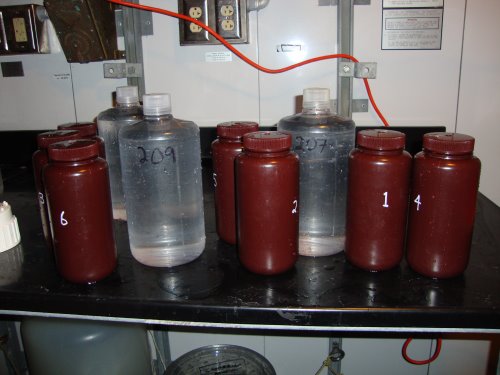
Kristina and I prepared the bottles for the experiment. My job was to stir the large bottle of seawater from the Nisken. The water needs to be stirred so that nothing settles out of it; but you need to stir it in a manner that does not create currents in the bottle.
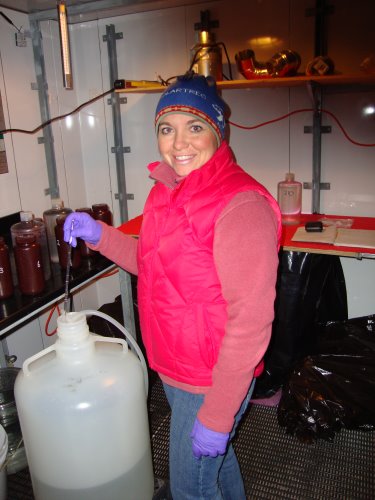
Kristina siphoned the water from the large bottle into the smaller bottles that would be used for the experiment. The clear ones for the krill and controls, the brown ones for the phytoplankton data.
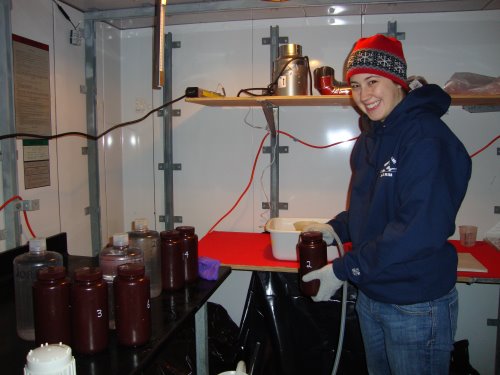
Celia “picked” the krill that would be used in this experiment. Dr. Campbell recommended 5 or 6 krill in each bottle.
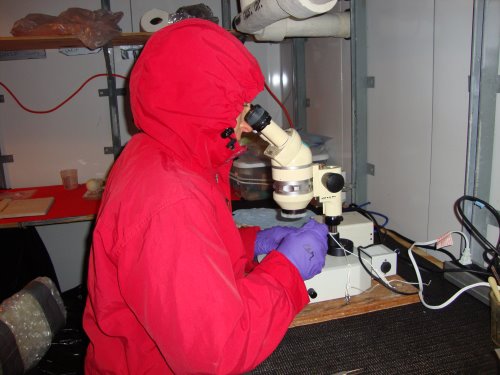
The data is recorded in a lab notebook...everything is written down in notebooks. Even though we have access to computers and spreadsheets, we record data the old fashioned way. Later, it gets entered into the computer.
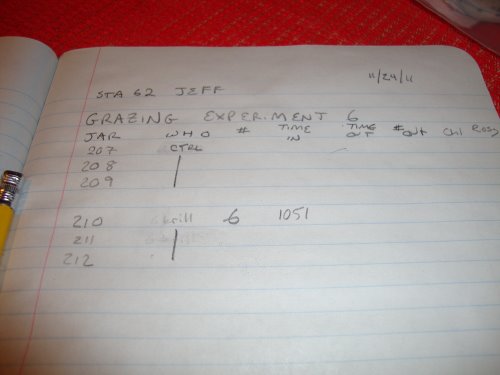
Today, I am going to introduce you to another member of the Science Team. Kristina is an intern that's here as part of the pod team and she'll be helping out with the zooplankton genetics. She is also my roommate! She just graduated in May from the University of Rhode Island with a B.S in Marine Biology. What she enjoy most, is just learning, asking questions and gaining hands on experience. When I asked her what advice she would have for anyone interested in this field, she responded to gain experience early. This way you find out what you like and what you don't like and just to gain general knowledge. Also it's important to gain a good biology background. Not only will this help down the road, but if you find out that the marine field isn't for you, every other field is open.
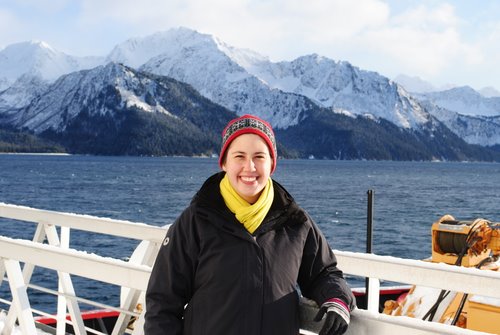
We are making our way South...very soon we will leave the ice and dark of the Arctic winter behind!
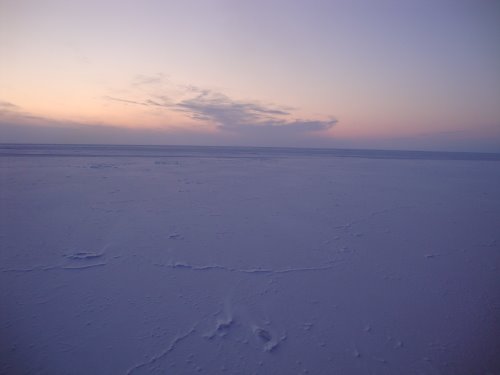
New Vocabulary
control: A standard of comparison for checking or verifying the results of an experiment.
Question of the Day
Explain why is it important to have a control in your experiment?
Stay tuned as we continue our exciting voyage on the USCG Cutter Healy. Until then...
“Live as if you were to die tomorrow. Learn as if you were to live forever” - Mohandas Gandhi


Comments